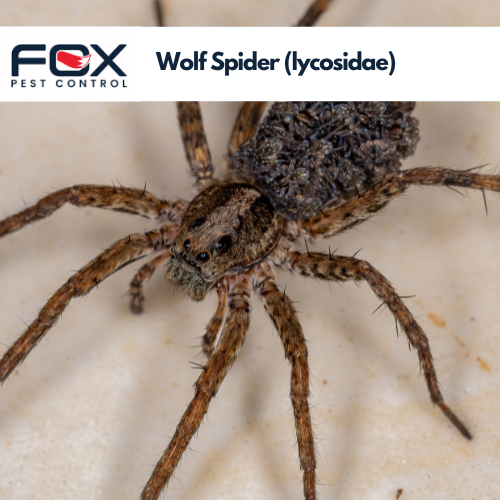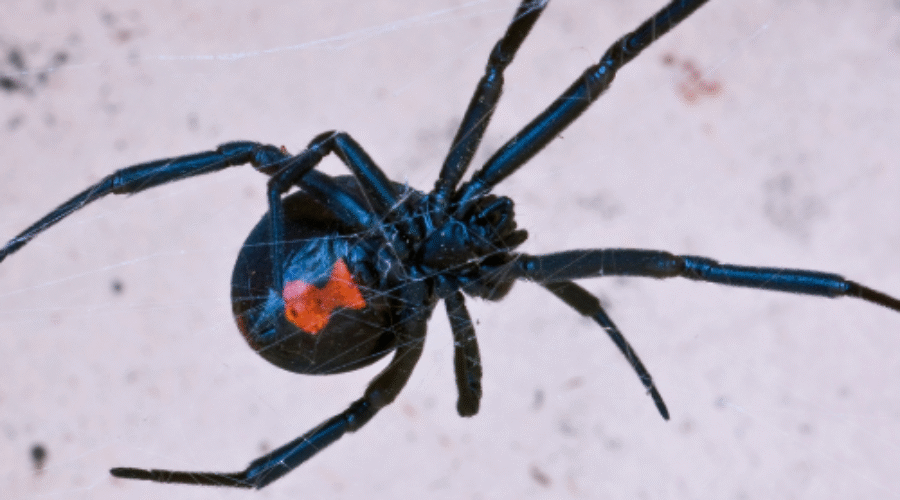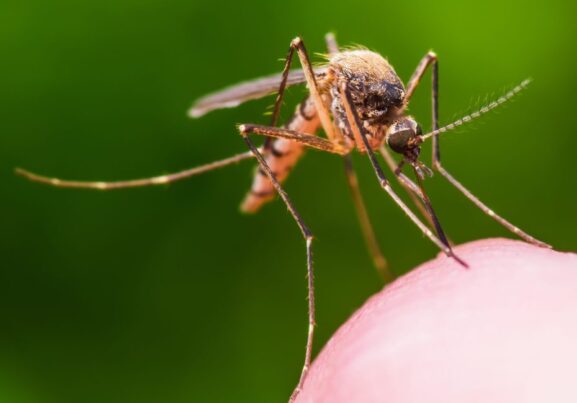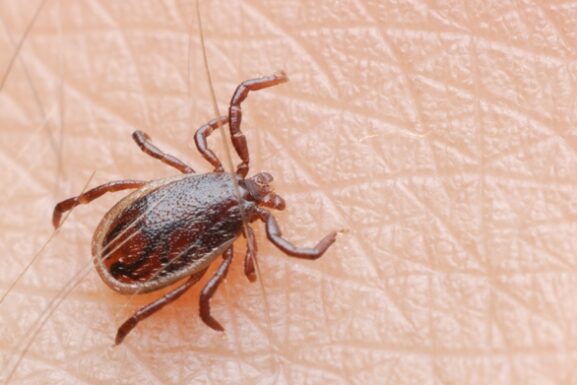5 Venomous Spiders in Massachusetts this Winter
Even in the chilly Massachusetts winters, venomous spiders can still be a concern. Several species seek shelter in homes across Eastern Massachusetts, hiding in crawl spaces, basements, and attics. While their bites can be painful, the webs they leave behind are often the most annoying.

As fall rolls around, every homeowner should ask: are we ready for the potential invasion of venomous spiders this winter? In this guide, we’ll cover the most dangerous spiders in the area and share tips on keeping them out so your home stays protected all season long.
The 5 most common venomous spiders in Massachusetts this winter are:
- Yellow Sac Spiders
- Wolf Spiders
- Funnel Web Spiders
- American House Spiders
- Cellar Spiders.
What Are the Most Venomous Spiders in Massachusetts?
Spider bites can be serious, so it’s important to see a doctor or visit the emergency room right away if you’re bitten. To ensure proper treatment, try to bring the spider with you for identification, as it can help determine the right antivenom. Something to remember: while many people say ‘poisonous,’ the correct term is ‘venomous’—like snakes and some lizards, spiders inject venom through their bites.
Like most venomous animals – there are varying degrees of venom potency, and an extremely virulent spider is rare in Eastern Massachusetts.
Yellow Sac Spider (cheiracanthium inclusum) – Venomous
This spider carries a painful bite, and although it most often stalks its prey among the grass outside, it can wander inside and hide in crevices, attics, or other hidden areas. It doesn’t spin webs, though it creates a sac-like nest for shelter and a place to keep its silken egg sacs before hatching. Multiple species of this yellow spider are venomous, and bites are often confused with those from brown recluse. Long-term effects are rare in Eastern Massachusetts, and hospitalization is even more rare. That doesn’t mean a Yellow Sac Spider bite won’t hurt or require treatment.
Wolf Spider (lycosidae)- Venomous
This species also prefers hunting in tall grass, spins silk only for egg sacs and shelter, and chases down prey on speedy legs. Its furry body has given rise to its common name, and excellent eyesight allows it to hunt along the ground at high speed. Females carry the egg sacs under their spinnerets until hatching, when the tiny spiders attach to their back. Bites from a wolf spider rarely result in hospitalization, but they can be painful. One issue with spider bites in Eastern MA is identification. If you’re not sure what bit you, it’s always best to play it safe and see a doctor.
Funnel-web or Grass Spider (agelenopsis)- Venomous
At just 3/4 of an inch long, these spiders pose little threat to humans since they rarely come indoors or bite. Just a reminder that if you’re not sure what type of bite you have, and you have pain and swelling in the area, it’s important to seek treatment from a doctor. Unlike their cousins in Australia, these spiders are not aggressive and prefer to remain in their sheetlike webs with a funnel on one corner where they await potential victims. These could make their way inside but present little threat to humans. In most cases, their fangs are too small to even penetrate human skin – but their venom can cause a reaction to some people.
Cellar Spider (pholcidae) – Not Venomous
These long-legged spiders, often confused with Daddy Long Legs, are surrounded by myths about their ‘deadly poison.’ However, Daddy Long Legs aren’t spiders at all—they’re larger relatives of ticks and mites and don’t contain any venom. Cellar spiders, despite the urban legends, are harmless to humans. When threatened, they violently shake their webs to confuse predators, almost disappearing from sight. While they aren’t venomous, their bites can sting and cause a reaction in sensitive individuals. Bites are rare, but they can happen.
American House Spider (parasteatoda tepidariorum) – Venomous
With its orblike abdomen, this spider is a common cobweb weaver. Along with the hobo spider (not dangerous) and black widow spiders (uncommon in Massachusetts), it makes messy, complex, three-dimensional webs. You can find this spider in attics, crawl spaces, basements, and other places that aren’t often used. Although its bites do contain venom, its fangs are small, and the impact from that bite is minimal in humans.
Other Dangerous Spiders
Common dangerous spiders in the United States include the brown widow (Latrodectus geometricus) or black widow spider (Latrodectus mactans), which has an hourglass-shaped mark on its underside and venom that attacks the nervous system. Another type is the brown recluse spider, which has necrotic venom that forms a painful blister on the skin that pops and exposes dead, raw flesh underneath. Neither species is common in Massachusetts, though the Northern Black Widow (Latrodectus variolus) is reportedly seen in Massachusetts during the spring and summer months.
Venomous Spiders Not Present in Eastern Massachusetts or the USA
The Sydney funnel-web spider (Atrax robustus) is considered the world’s most venomous spider, with venom potent enough to kill an adult human. Thankfully, these spiders are only found in Australia and nearby islands. Similarly, the Brazilian wandering spider (Phoneutria), also known as the banana spider, is dangerous but rarely seen outside Central and South America or Brazil.
Here’s How To Control Spiders at Home
Follow these tips to get rid of spiders and other pests and control populations around your home this winter.
Cleaning
Spiders have trouble finding hiding spots in a clean home, so maintaining a regular cleaning routine is key. Focus on areas like the basement, attic, and crawl spaces where they like to hide. You might also want to invest in an automatic vacuum cleaner that runs at night when spiders are most active.
Food Sources
Turn off outdoor lights to avoid attracting moths, flies, and other spider prey. Store food in airtight containers on high shelves to prevent attracting insects that spiders might hunt.
Seal Entries
Use silicone caulking to seal cracks, gaps, and crevices around doorways, windows, water and gas piping, and the foundation and sill plates.
Clear Away Hiding Places
Clear your yard of fallen branches and trim vegetation at least two feet away from the perimeter. Hedges should also be kept two feet away from the siding of your Eastern Massachusetts home. Store firewood and compost on elevated platforms at least one foot off the ground and twenty feet from your home (this also helps to protect against termites!). Keep garbage dumpsters at least twenty feet away to minimize spider attractants.
Fox Pest Control Spider Management
When spiders invade your home and start settling in, it can be challenging to manage, especially if you’re dealing with more than a few potentially venomous species. That’s where our team at Fox Pest comes in. As your local spider exterminator in Eastern Massachusetts, we have the knowledge and tools to tackle your spider problem effectively. Our friendly, well-trained pest technicians use commercial-grade products as part of our top-notch Home Protection Plans, ensuring protection for you and your family from all kinds of pests this winter. Don’t wait—call us today for your free estimate. Remember, when it comes to pests, we’ve got you covered!



